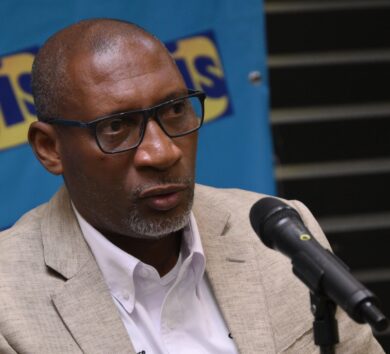

GENEVA (Reuters): War crimes and crimes against humanity are still being committed in Ethiopia nearly a year after government and regional forces from Tigray agreed to end fighting, U.N. experts said in a report published on Monday.
Thousands died in the two-year conflict, which formally came to an end in November last year. Both sides accused each other of atrocities, including massacres, rape and arbitrary detentions, but each denied responsibility for systemic abuses.
“While the signing of the agreement may have mostly silenced the guns, it has not resolved the conflict in the north of the country, in particular in Tigray, nor has it brought about any comprehensive peace,” Mohamed Chande Othman, chair of the International Commission of Human Rights Experts on Ethiopia, said in a statement accompanying the report.
In its report, the commission said human rights violations in Tigray were “grave and ongoing”, and said there had been attacks by the Eritrean Defence Forces (EDF) against civilians.
Eritrea, which sent in troops to fight alongside the Ethiopian government forces during the conflict, has rejected accusations from residents and rights groups that its soldiers committed abuses in Tigray.
In comments to Reuters, Eritrea’s information minister Yemane Ghebremeskel described the report’s finding as defamatory and said the country was preparing its formal response.
Ethiopia’s army and government spokespeople did not respond to requests for comment on the report.
Widespread and systematic attack
Radhika Coomaraswamy, a member of the commission, described the sexual violence taking place in the conflict as being “as bad as it gets”.
“I must admit the worst of this was that perpetrated by Eritrean forces in Tigray. Though, of course, Ethiopian forces were also responsible,” she said, adding that Tigrayan forces had also perpetrated sexual violence in Amhara.
The commission’s report said violations “have been abetted or tolerated by the federal government,” which it said failed in its duty to protect its population.
The report said the Ethiopian National Defence Forces, Eritrean Defence Forces and allied regional special forces carried out a “widespread and systematic attack” against civilian populations in the form of murder, torture, rape and other violations.
Ethiopia, which has tried in the past to have the U.N.-mandated inquiry stopped, “has sought to evade international scrutiny,” according to the commission, whose requests to meet with government officials and travel to the country went unanswered.
Ethiopia’s government and its armed forces have repeatedly denied that their soldiers committed widespread crimes on their own, or with Eritrean forces, and have promised to investigate complaints of individual abuses.
Authorities from the Ethiopian region of Amhara have also denied that their forces committed atrocities in neighbouring Tigray.







Comments